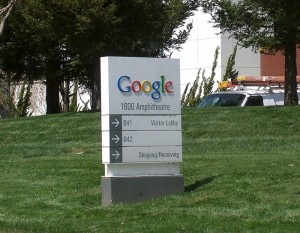Every time I see someone wringing their hands about a tech company’s dominance, I advise just a little patience. It’s awfully difficult to maintain excellence in that sector. Journalist Wade Roush thinks that Apple, Google and Facebook are all already in their gloaming. Time will tell. Of the three, I have the most hope for Google, even though their non-search endeavors have yet to overwhelm. From Roush’s Xconomy post:
“At the risk of making myself into a pariah around Silicon Valley, I have a prediction to make. The storm has just about run its course. We have passed peak Apple, peak Google, and peak Facebook.
By which I mean: Apple will never again come out with a product as transformative as the iPhone. Google will never build anything more useful than its existing search engine, and it will never discover another business model as lucrative as search-based advertising. And Facebook may keep growing until every person on Earth with a computing device is a member, but it won’t ever be anything more than a place we share photos and links.
In sum, the next major advances in technology—the ones that will power the next cycle of entrepreneurship in Silicon Valley and the nation’s other tech hubs—will have to come from somebody else. To switch metaphors, the car is already out of gas; we just think there’s still forward progress, because we haven’t coasted to a stop quite yet. But we will.”


